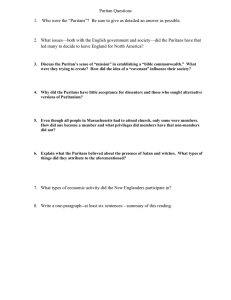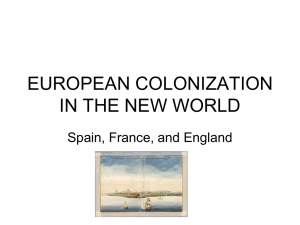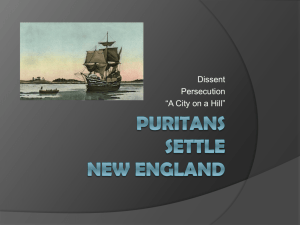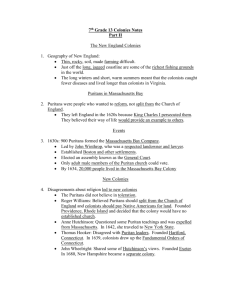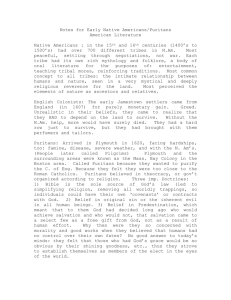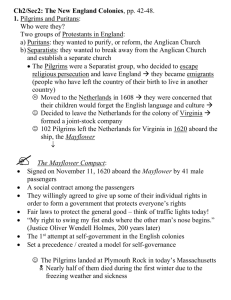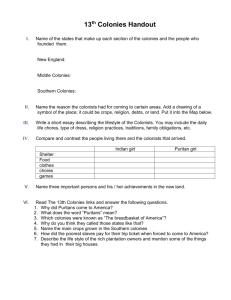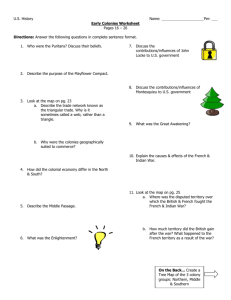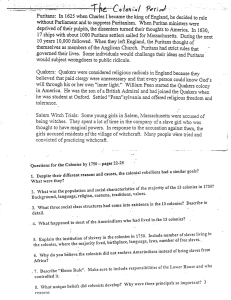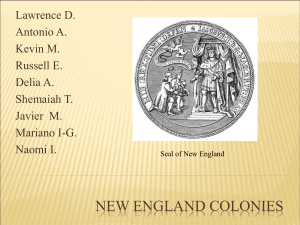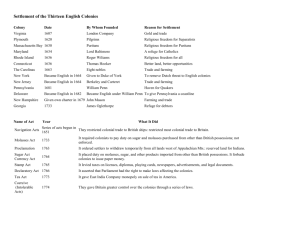social characteristics
advertisement
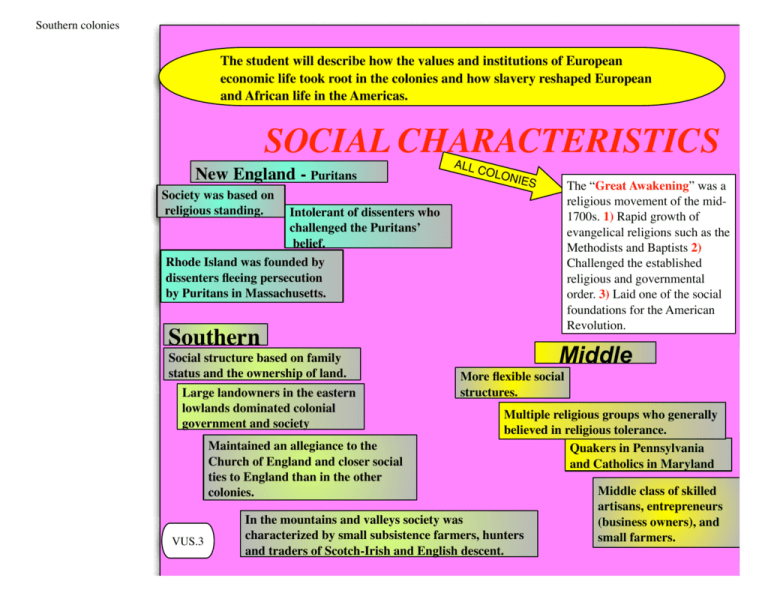
Southern colonies The student will describe how the values and institutions of European economic life took root in the colonies and how slavery reshaped European and African life in the Americas. SOCIAL CHARACTERISTICS New England - Puritans ALL C OLO NIES The “Great Awakening” was a religious movement of the mid1700s. 1) Rapid growth of evangelical religions such as the Methodists and Baptists 2) Challenged the established religious and governmental order. 3) Laid one of the social foundations for the American Revolution. Society was based on religious standing. Intolerant of dissenters who challenged the Puritans’ belief. Rhode Island was founded by dissenters fleeing persecution by Puritans in Massachusetts. Southern Social structure based on family status and the ownership of land. Large landowners in the eastern lowlands dominated colonial government and society Maintained an allegiance to the Church of England and closer social ties to England than in the other colonies. VUS.3 Middle More flexible social structures. Multiple religious groups who generally believed in religious tolerance. Quakers in Pennsylvania and Catholics in Maryland In the mountains and valleys society was characterized by small subsistence farmers, hunters and traders of Scotch-Irish and English descent. Middle class of skilled artisans, entrepreneurs (business owners), and small farmers.
